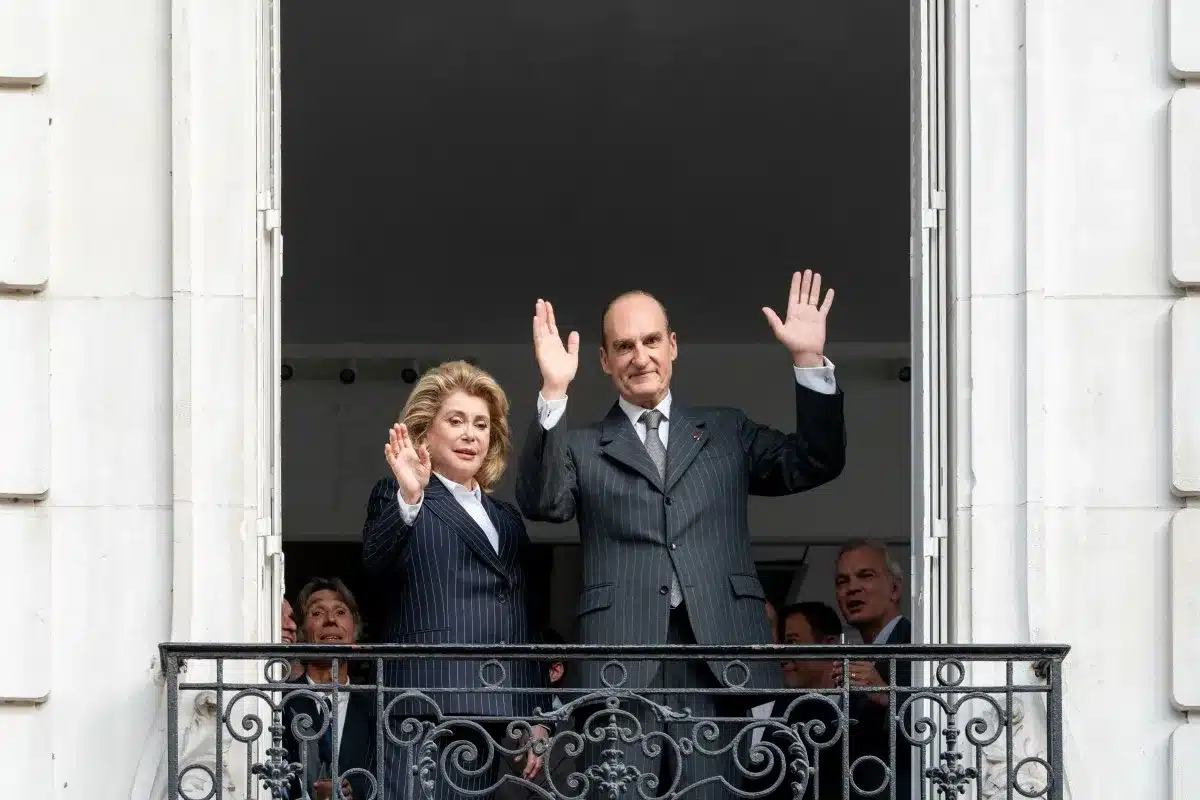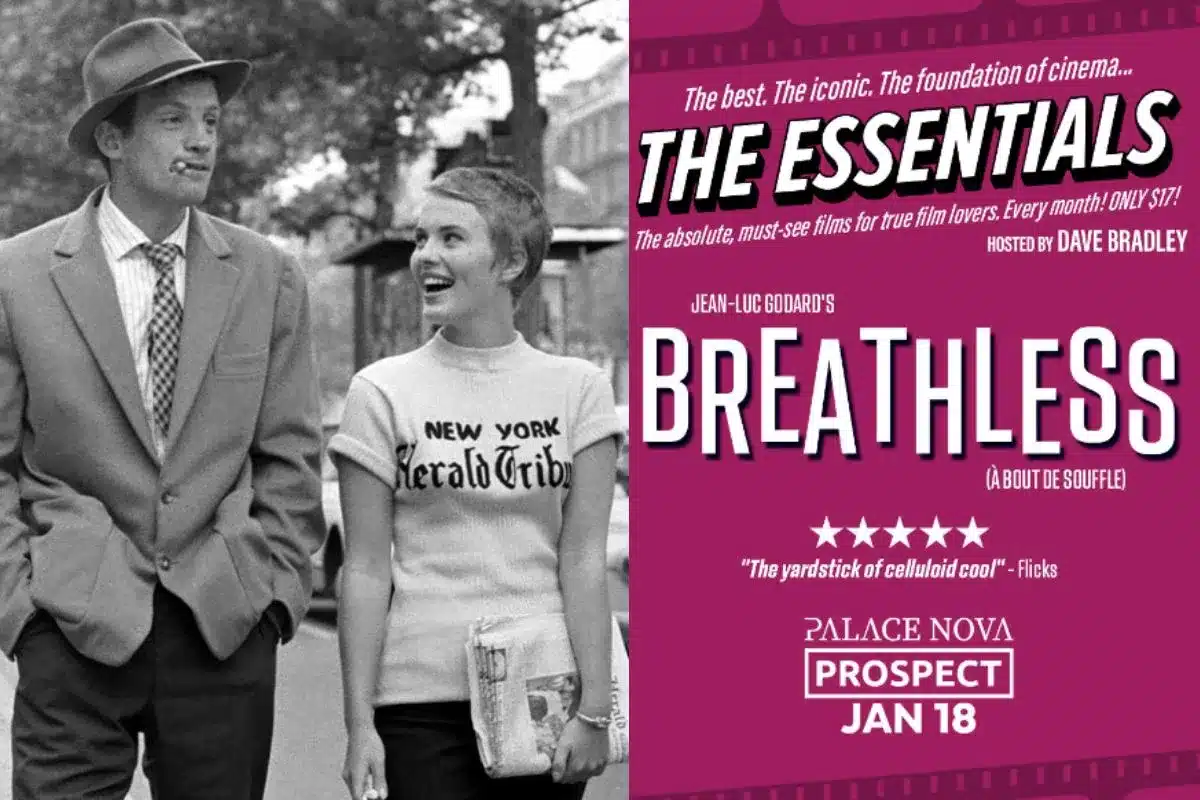The workaholic Deneuve (who was nearing 80 during production) had previously spoken about her unwillingness to appear in true stories, and yet she agreed to star here due to the humour in Domenach and Clémence Dargent’s screenplay. But how she felt about the uncertain tone and some significant departures from fact is unrecorded.
Her initially haughty Bernadette Chirac is seen fighting to be taken seriously by her husband and the public during Jacques’ reign as French President between 1995 and 2007. He’s played by Michel Vuillermoz, who delivers a broad, syllable-rolling performance, but she underplays, and allows Bernadette to grow, even as the Americans insulted the French over the Iraq War and Jacques found himself in one scandal after another.
Her pushy daughter Claude (Sara Giraudeau) works alongside Dad in the government, and advises that Bernadette employ a nervous PR expert named Bernard Niquet (funny Denis Podalydès) to help when it comes to dealing with the media. Our subject also has another, semi-alienated daughter named Laurence (Maud Wyler), who (in a much-criticised plot point) has an eating disorder, about which only Bernadette seems truly concerned.
Taking fashion advice from Karl Lagerfeld (Olivier Breitman), Bernadette strikes out without Jacques’ permission, and works hard at improving her public image, which, yes, did really happen. But what of the played-straight sequence where Jacques must make a statement after the death of Princess Diana in 1997, and she’s present when the government tracks him down exactly where he shouldn’t be? Is this the sequence that upset the real Claude Chirac? And did it really take place exactly like this?
Despite her faults, you also can’t help but think that Bernadette Chirac would have made a much better French President than the far-right Marine Le Pen. So where is she now when her country really needs her?







